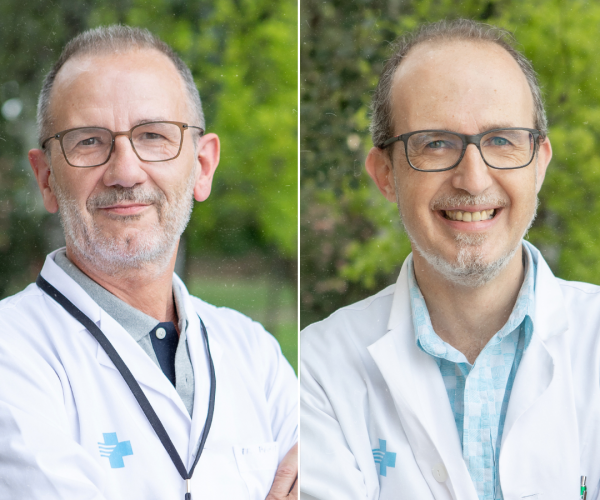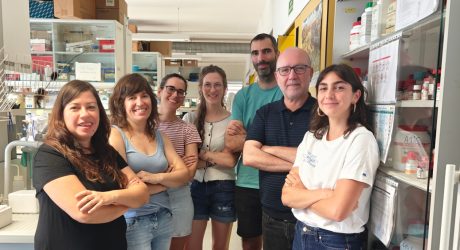Two research projects on personalised precision medicine awarded in Lleida
The proposal ‘Impact of Sleep-disordered Breathing Management inSystemic Hypertension Control: METASLEEP project’ by Ferran Barbé Illa has been funded with more than 2 million euros
The Ministry of Science and Innovation has awarded funding to two research projects on personalised precision medicine presented by the Institute for Research in Biomedicine of Lleida (IRBLleida). Both projects involve a transformation in the way in which decisions are made in clinical practice and in public health measures, and also pursue a safer, more efficient and personalised medicine.
This is the project ‘Impact of Sleep-disordered Breathing Management inSystemic Hypertension Control: METASLEEP project’, led by the Territorial Clinical Director of Chronic Respiratory Diseases of Lleida, director of CIBERES (Centre for Biomedical Research Network Respiratory Diseases), professor at the University of Lleida and head of the Translational research in respiratory medicine group at the Institute for Biomedical Research of Lleida (IRBLleida), Ferran Barbé Illa. This project has received funding of €2,344,100.
The other funded project is ‘Genetic susceptibility to predict weight loss after bariatric surgery’, headed by Albert Lecube Torrelló, head of research and innovation at the Arnau de Vilanova University Hospital in Lleida (HUAV), head of the Endocrinology service at the same hospital, professor at the UdL and head of the research group on Obesity, Diabetes and Metabolism Research Group (ODIM) at IRBLleida. This project has received funding of €839,298.90.
In the first case, METASLEEP is a multicentre project that includes centres in 9 regions of Spain: Andalusia, Balearic Islands, Cantabria, Castilla-La Mancha, Catalonia, Community of Madrid, Extremadura, La Rioja and the Basque Country). The Arnau de Vilanova University Hospital in Lleida will be the coordinating centre and will run for 3 years. The proposal aims to implement a new hypertension management system, which will include monitoring and treatment of breathing disorders during sleep. This new management based on precision medicine will be implemented at the primary care level and will improve the control of blood pressure, the main risk factor for the leading cause of death in the world, cardiovascular diseases. In addition, the METASLEEP project aims to contribute to the development of personalised medicine tools by identifying the molecular profile that will allow the development of a non-invasive model with clinical utility.
“This project will allow the expansion of the model of care for patients with sleep apnoea and hypertension that we follow in Lleida to the rest of Spain,” explained Ferran Barbé.
In the second case, the project team is the result of the collaboration of 12 Spanish university hospitals with the support of their associated research centres. The centres are distributed in 9 autonomous communities: Andalusia, Balearic Islands, Canary Islands, Castilla y León, Catalonia, Community of Madrid, Galicia, Navarre and the Basque Country. The coordinating centre is IRBLleida and the project will last 3 years. The project will allow to know how genetic load plus exposure variables influence the response to bariatric surgery in order to achieve an effective and efficient management of obesity. Obesity affects more than a third of the world’s adult population and every year more than 500,000 surgeries are performed worldwide, of which approximately 30% have unsatisfactory results.
This research will provide the right information to the patient prior to the surgical approach, personalising clinical decisions and making decisions aimed at improving the health of citizens. In addition, it can serve as a basis for health administrations (public and private) to decide which patients to allocate their economic resources to, since currently there is no filter and every patient who arrives at an Obesity Unit and passes the evaluation protocol ends up being operated on.
“This project will bring us closer to personalising the treatment of severe obesity, as we will be able to predict before surgery is performed what the outcome will be, both in terms of weight loss and the response to associated diseases such as diabetes or sleep apnoea. This should allow us to modulate the expectations of the patient and the professional, to select the best surgical technique for each patient, and even to look for alternatives to surgery in patients whose results are not necessarily positive,” said Albert Lecube.




